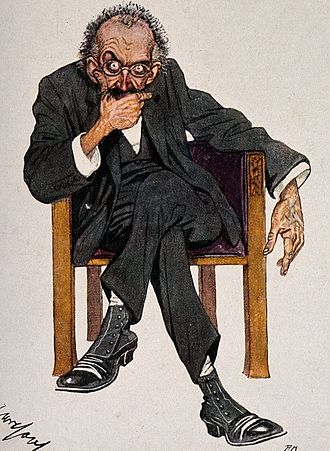Image of a psychiatrist from the 1930s.
Can or should psychiatry join the personalized-medicine bandwagon?
An article in STAT, Boston Globe affiliate, says:
“Despite the tremendous effort being poured into identifying biomarkers to help guide treatment for various psychiatric disorders, this work has yet to significantly improve clinical outcomes. {unlike with, for example, personalized medicine’s advances in treating certain cancers}. A big roadblock is that we haven’t yet found strong genetic mutations that can guide treatment for mental health issues. It’s not for lack of trying. In 2013, three large groups of investigatorsset out to analyze 1.2 million genetic variants in 2,256 patients with depression. They were hoping to find a genetic marker that reliably predicted whether a patient would get better with antidepressant medications.
“They didn’t find one. Continuing to look for genetic mutations linked to mental health certainly makes sense. But it’s already possible to match patients with effective treatments using other types of cheap and accessible information. Analyzing an individual’s sociodemographic data, such as race or gender, and self-reported behavioral information, such as how poorly he or she sleeps, can often point the way to knowing how he or she will respond to a particular therapy.”
To read the STAT article, please hit this link.




